Almost exactly a year ago, I boarded a WOW Air flight in BWI bound for Reykjavik, Iceland. This was the first leg of an almost two-week long food research trip I had been anticipating for months. The first ten days were to be spent at the Italian Culinary Institute where I was enrolled in a Traditional Italian Salumi and Charcuterie course. This would be my first professional culinary training. Afterward, I was bound for Copenhagen where I had meetings lined up at the Nordic Food Lab, one of the primary sources of original inspiration for the Eastern Shore Food Lab. Despite my excitement for what lie in store for me, as the plane taxied toward the runway my mind was laser focused on how I would spend the next six and a half hours on my flight . . . getting lost in the brand-new book that arrived at my doorstop from Amazon the day before.
Check out Bill’s research for the Eastern Shore Food Lab
On the plane I was seated near an emergency exit so there was only one other seat in my aisle – an ideal setting for reading and not being disturbed. I was so focused on my book that I had no interaction with the man seated next to me save for the obligatory nod as I had taken my seat a few minutes earlier. And, why would I? Over the past few years I have flown extensively and what I used to view as an opportunity to relax, binge watch movies, or even talk to the people around me I now saw as an opportunity sit in my own little word and catch up on work. It had literally been years since I was engaged in a conversation with a stranger on a plane. No, I would be lost in my book for the entire trip.
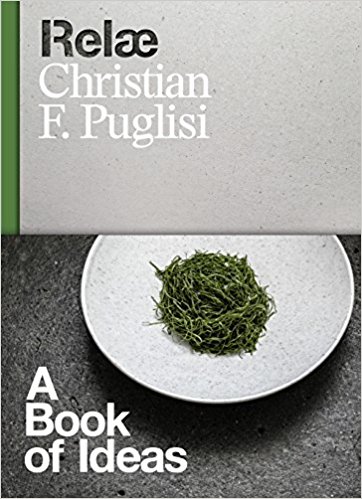
The author of the book in my hands was Christian Puglisis, formerly a sous chef at NOMA and currently the owner/chef of a progressive and ethically sound restaurant in Copenhagen, RELÆ that bears the same name as his book. This book was written in the same style as other progressive chefs have been writing lately – part cookbook, part interconnected essays, and part philosophy on food.
As I began to read through the pages, I realized the book was turning out to be incredibly inspiring to me. I am in the midst of developing the Eastern Shore Food Lab at Washington College and I really connected with Puglisis’s desire to create something that really supported his ethical stance on food. I glared at the gorgeous photographs of foods I could only dream of creating that made use of all sorts of uber-local and under-utilized ingredients. More importantly, I poured through the pages and learned about how he created his restaurant from nothing in a previously impoverished and crime ridden part of Copenhagen, and how his work help to support a rebirth in that community. As I read on, I dreamed about how what the college was building with in the Eastern Shore Food Lab would help bring knowledge, health, and inspiration to not only our students but the larger Eastern Shore community by empowering them to take control of their food and diet.
All of a sudden, I was interrupted and shaken from my day dream . . .
“Are you a chef?” the man next to me asked.
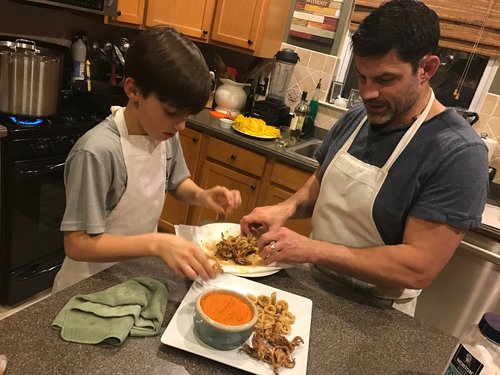
I looked up from my book and muttered, “huh?” shocked that he had spoken to me and wondering why he asked if I was a chef. When he saw the surprise in my expression he motioned to the cookbook in my hands and asked again, “are you a chef?” I have been passionate about cooking since I was a child, devoured every episode of Julia Child on a black and white television set, bought practically every cookbook that Amazon ever suggested, and spent a tremendous amount of time in the field hunting and gathering and in the kitchen preparing food for my family. But, unfortunately, none of those things qualified me to call myself a chef. So, I quickly answered, “no” and returned to my book.
A moment later I felt very uncomfortable with my abrupt answer. It was too short and in no way did it adequately capture who I was and the journey I was one. Nor, most importantly, did it relay what I was doing reading this particular book and why it was so important to me. So, I closed the book, turned to the man seated next to me, and began to tell him all about archaeology, experimental archaeology, ancestral foodways, nutrient density and the Eastern Shore Food Lab. This is a spiel I have given before. Unfortunately, I don’t have the elevator speech version down and don’t know if I ever will (or if I every should). It’s all too complicated, too important, too intertwined to distil down to a few sentence description. I would often see the life getting sucked out of the recipient of my long-winded description of how we have been processing food for millions of years and how that impacted biological and cultural evolution and, why it is so important to understand all of that if we are to improve our modern diets and health.
The typical response from whoever was unfortunate enough to receive my impassioned tirade, if they lasted long enough, was a polite nod before they found another person to talk to OR, if they were stuck with me, changed the topic. But, my response from the man seated next to me on this plane was different. There was a thoughtful look on his face.
He smiled, reached out his hand, and said, “That’s fascinating. My name is Konrad Knops. And, my business partner and I just started a bone broth company in Germany called, Brox. Please, tell me more about what you are doing.”
Over the next five hours we were engaged in one of the most meaningful conversations about food I have ever had!
He told me about his business, Urban Health whose focus is on holistic health and longevity. He told me how he began to prepare and provide his clientele with bone broth because of all of the nutritional and health benefits it possessed and how the demand was so great that he and his business partner, Jin-Woo Bae, decided to start Brox. In fact, the reason he was sitting here next to me was because he returning home from a research trip to Brodo in New York City.
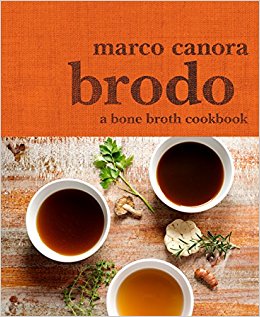
Brodo was launched in 2014 when Chef Marco Canora, who had recently witnessed the benefits of bone broth after regaining his own health, repurposed a street-front window off the side of his restaurant, Hearth, as a place from which to sell cups of bone broth. The demand was high and it didn’t take long to see the pedestrians’ in the lower east side of Manhattan transform the contents of the cups in their hands from coffee to bone broth. The success and attention that Brodo attracted along with his cookbook, Brodo: a bone broth cookbook, really helped fuel the bone broth craze in America that was taking place. Today, in addition to shipping all over the country, Chef Marco still maintains his, “Brodo Window,” and now has a broth shop in the West Village and has even partnered with the NYU Langone Medical Center to supply new mothers in the maternity ward with nutrient dense bone broth! I was very familiar with Brodo. I had been cooking out of Chef Canora’s book for months by the time I met Konrad and had dragged Christina to visit the Brodo bone broth window the earlier spring for our own bone broth pilgrimage. It was the perfect place for Konrad to visit as he built his bone broth business.
Konrad and I talked about health, diet, tradition, prehistory, and how politics and the modern healthcare system have impacted our health. We talked about what a healthy diet truly means and how the United States and Europe and many other places in the world were facing the same diet and health problems. We talked about how to empower people to take back control of their food and diet. The dialogue was so intense and meaningful that I didn’t want the flight to end because that would also mean an end to the conversation.
When we landed in Reykjavík, I invited Konrad to visit the Eastern Shore Food Lab when we are up and running so that he could see what we are buiding and suggested that it would be great if Konrad could conduct a workshop for students and the community and also give a presentation at the college. And, Konrad invited me to visit Brox, his bone broth operation in Berlin. Both invitations were entirely genuine, but, I was skeptical that we would ever see one another again.
Conversations this intense and meaningful transport those engaged in them to a temporary alternative universe of sorts where they temporarily escape from the responsibilities and pressures of real life. That is part of the beauty of them.
However, invitations and plans made during these altered states run the risk of never being realized once real life sets back in. Konrad and I shook hands as we departed the plane – he continued on to Germany and I caught a connecting flight to Copenhagen.
FAST-FORWARD 1 YEAR TO OUR FAMILY LIVING IN IRELAND
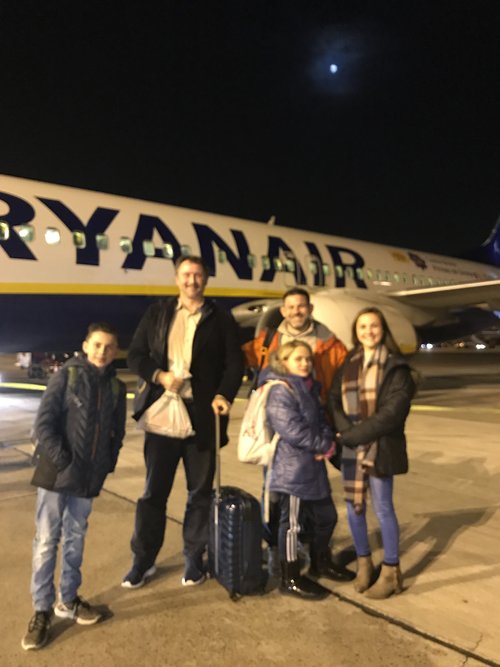
Over the next year as I continued to experiment with my own various bone broth recipes at home and I began to realize what an important component it would make to the Eastern Shore Food Lab. I never forgot Konrad’s invitation and included it on every draft of what I wanted to accomplish through the Food Evolutions Project during my sabbatical. Nine months after our original meeting I sent an email to Konrad to reestablish contact and inquired whether or not his offer still stood. His reply was an empathic, “Yes!” and we started planning a visit.
I had contacted him in the fall and he was in the midst of getting ready for the winter season – certainly the busiest time of year for piping hot, nutrient-dense bone broth. However, between opening up several new seasonal pop-up bone broth outlets in locations such as Berlin, Hamburg and Vienna, and even appearing on German television show, Cave of Lions (the German version of Shark Tank) he found time to communicate with me and schedule an amazing day for us in Berlin that allowed me to accomplish everything I was looking to do in the visit.
My friend and colleague, Jason O’Brien, joined my family and I for the trip. Jason’s interest in connecting people with their heritage and health through food with his company, Odaios Foods, certainly got him excited about visiting Konrad and seeing what he is doing with bone broth. So, the six of us caught a super cheap RyanAir flight to Berlin and met Konrad at their store and office at Urban Health on Goethestraße to begin our whirlwind day. Here we met Konrad’s friend and business partner, Jin Woo-Bae, and toured the very place where Brox started. We saw the rooms where they saw patients and the small kitchen where they cooked the bone broth to nourish them. We saw the room where they came up with the idea for the business. We learned how this labor of love was connected to his entire family. It just so happens that Konrad’s parents are both incredibly talented artists and, in addition to the various artwork they created that is located throughout all of the twists and turns of his office, they have applied their talents to help with advertising initiatives. His mother even designed the incredible cardboard cow that holds six jars of the broth complete with a handle on top. In fact, everyone around Konrad and Jin seem to be dedicated to making sure this initiative is successful which speaks volumes to how much everyone believes in what they are doing. It was here in the office that I began to ask the barrage of questions that have been compiling since I first met Konrad. And, they even though my questions continued all day he answered each and every one of them patiently.
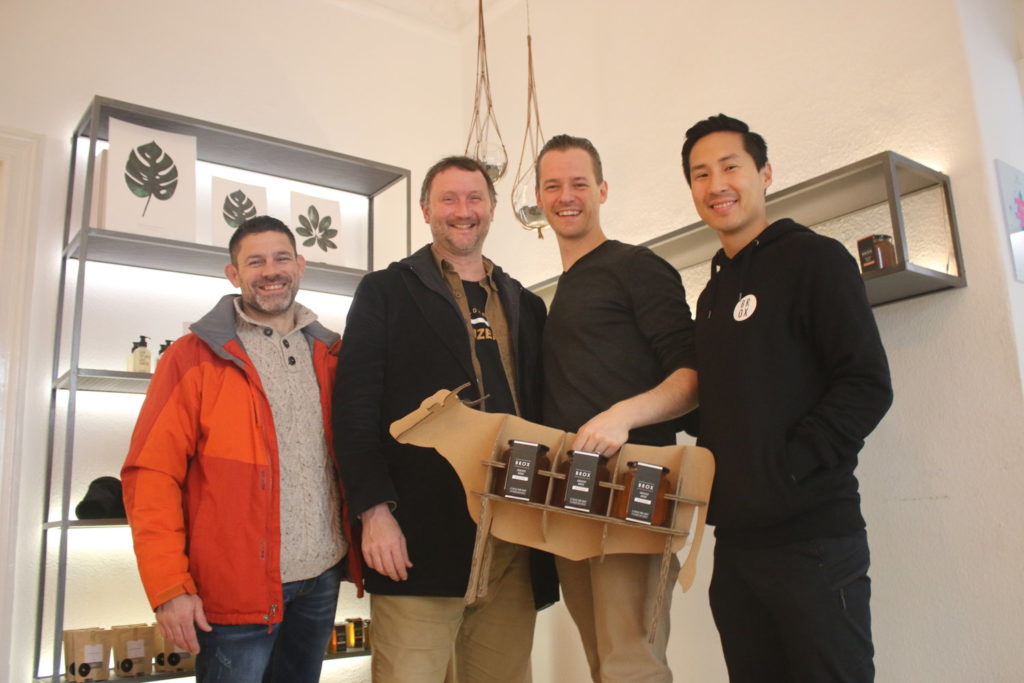
Off on a Fermentation Adventure Around Berlin
We left his office and were off to the next stop on our whirlwind tour – to see one of the most important fermenters in Germany, Markus Shimizu. To get there, Konrad arranged for us to take the Number 100 bus so that we would be able to have a short “sightseeing” tour of some of the important spots in Berlin, including the Bundeskanzleramt, or the German “White House” which houses chancellor, Angela Merkel. And, of course, we made sure to sit on the top level of the bus to get the best view!
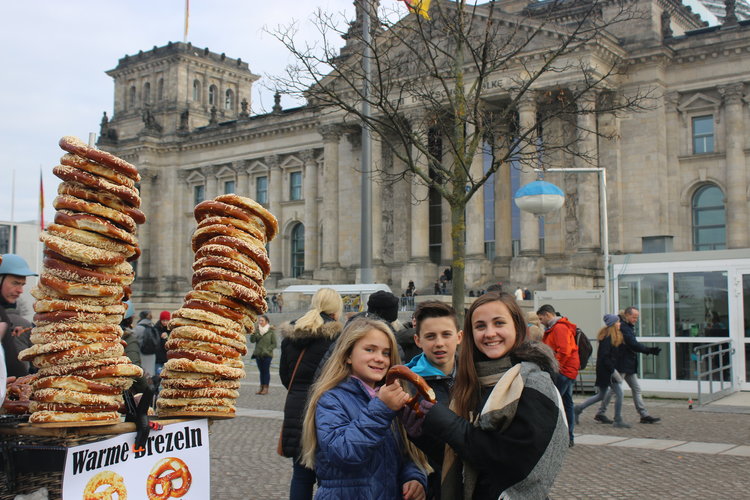
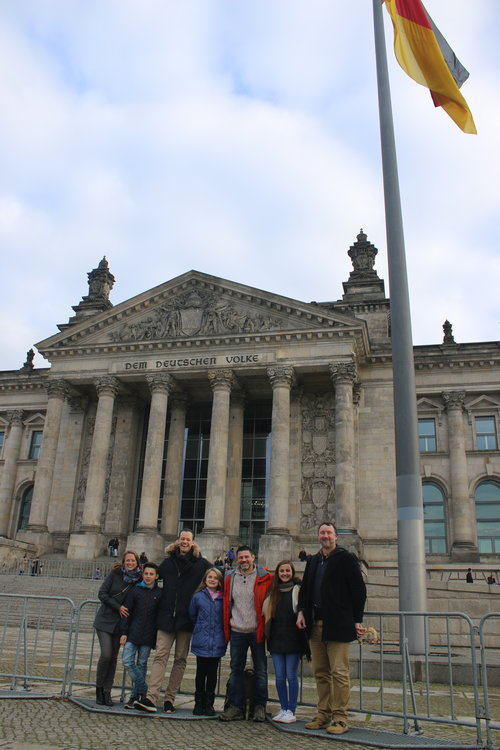
Right at home with the bubbling jars
When we entered the home of Markus Skimizu of Mimi ferments there was an instant connection. I recognized the fermenting vessels of all shapes and sizes that adorned the various rooms in the house. I recognized the overflowing industrial fridge that contained bottles of his completed ferments. And, I recognized the passion he has for what he is doing. Different ferments, but the same set up as that which exists in my home.
Even though they were preparing for a children’s birthday party that was to take place in their house in a few hours, Markus dropped everything he was doing to give us a full blown tour of a sort of fermentation for which I know very little about – soy sauce, koji, miso, natto and tempeh. Over the course of the next hour he showed us how he is relying upon traditional fermentation strategies that not only transform the taste and texture of foods but also the nutrient content, quality and density of foods. It was all fascinating, and, most importantly, he does not restrict himself to solely using traditional raw ingredients. Instead, he experiments with applying these transformative food processing strategies to a variety of local, European, local ingredients. And, we got to taste it all! We tried scores of different soy sauces made from ingredients that ranged from egg whites to naked barley.
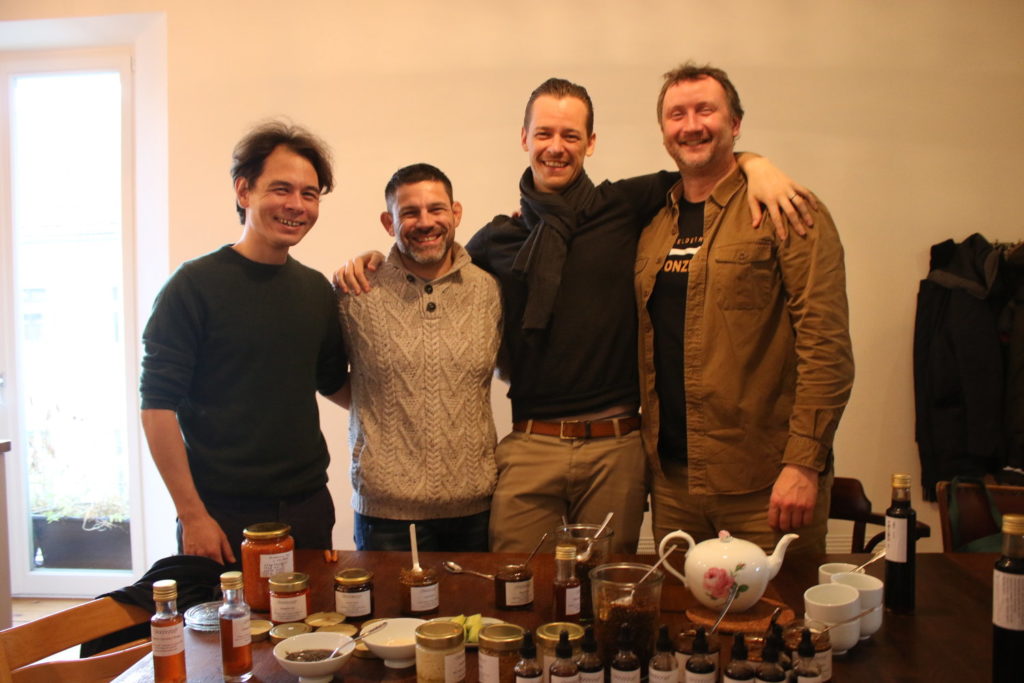
It is an understatement to say that we left Markus inspired to experiment with not only new forms of fermentation but also with the application of tradition techniques on all sorts of new ingredients.
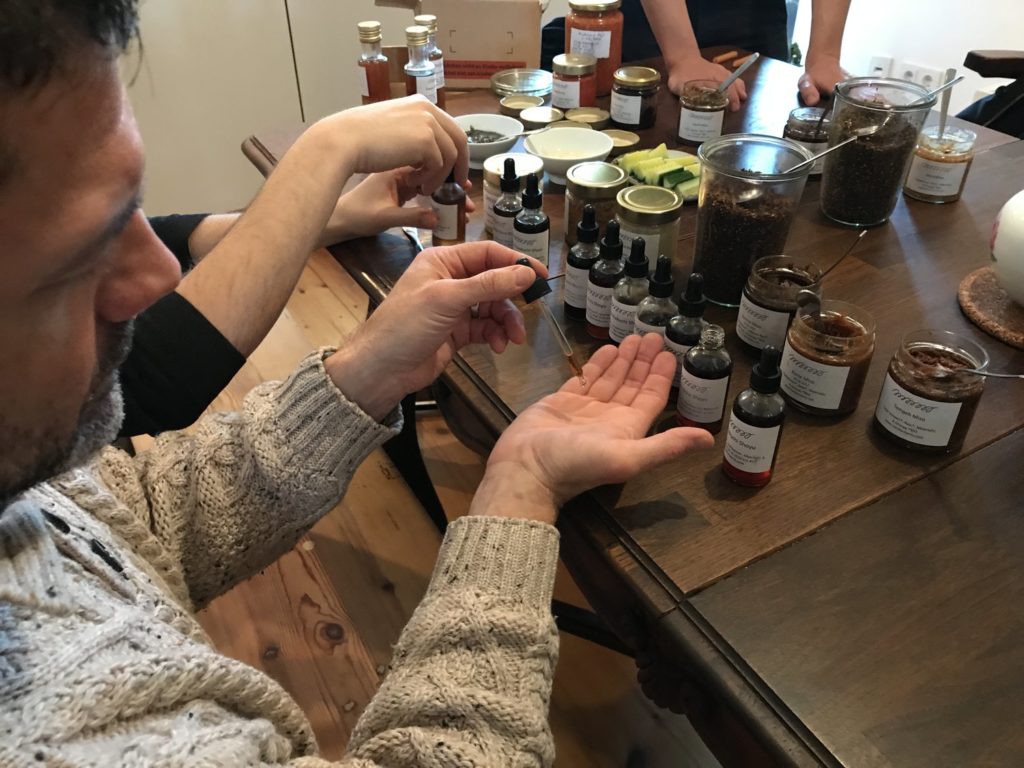
TIME TO TASTE THE BROTH!
The next stop on our whirlwind food tour of Berlin the was Konrad and Jin’s own pop-up store in Berlin. This Brox pop-up was located in a closed down seasonal ice cream parlor that instead of cold ice-cream served warm, delicious, nutrient-dense broth in 100% compostable cups in the winter – it was brilliant! Their menu was simple – the pop up offered three different broths (beef made from the bones of organic, grass-fed cows; chicken made from organic, free-range chickens; or organic, vegan-friendly mushroom) each served in two different ways. Konrad prepared each and every one for us to sample. They were all delicious and, perhaps what surprised me the most, also beautiful!
They have realized that modern diners have modern expectations of taste, texture and presentation and when they developed their menu took the time to not only create incredible recipes that adhere to their strict ethical principles, but also paid attention to presentation. Also realizing the nutritional and sustainable aspects of entomophagy (insect consumption) there is the option to include a grasshopper with your cup of broth! We tasted all of the offering and, while each of us had our favorites, we certainly enjoyed them all! The feeling we all had after drinking their broth was intensely satisfying, yet not overpowering at the same time.
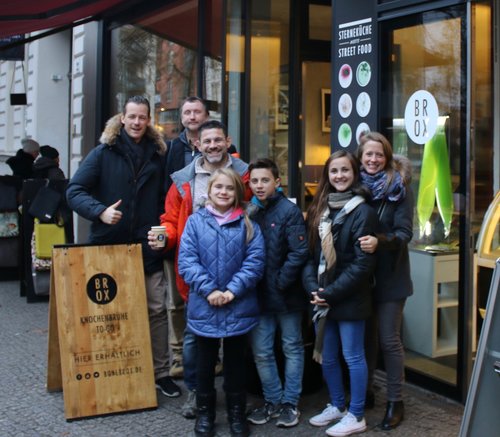
Certainly, drinking something warm on a cold winter day as we traipsed around Berlin would comfort anyone. But, there was something more. The level of taste and presentation that they achieved as a result of their intensive development was amazing. But it was also the thought that went into all of it – the signage detailing why bone broth is important to human health and their strict adherence to the guiding principles that got them started down this road in the first place are simultaneously comforting and connective. Who could imagine that drinking a cup of bone broth in a compostable paper cup in a closed down ice cream parlor could be so meaningful? Well, it was.
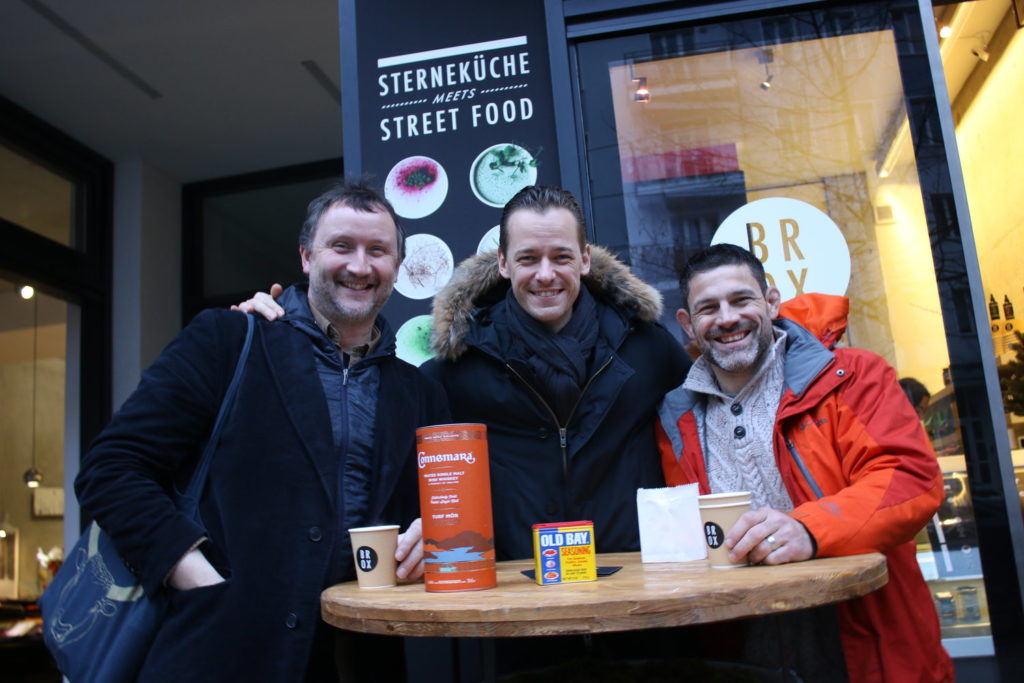
Next Fermentation Stop – A Brewery!
We left the Brox pop-up with our bellies and souls satiated to head off to our last stop – BRLO Brewhouse (www.brlo.de ). BRLO is housed in a container complex made almost entirely of shipping containers! It can be relatively easily assembled, taken down, and re-assembled. Given BRLO is a temporary pop-up designed to last between 3-5 years, this style of construction was a perfect solution. Germany has both incredible beers and a rich beer tradition; however, the microbrew phenomenon that I am used to in the United States is in its infancy here in Germany. That makes BRLO even more unique! BRLO is the Slavic origin of the name Berlin and this pop-up is the result of a cooperative effort between brewers, Katharina, Christian and Michael, who are contributing their innovation to the German craft beer movement and, head chef, Ben Pommer who is working hard to re-envision brewpub food.
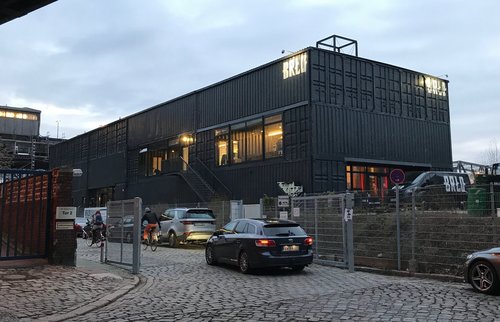
We were all taken on a tour of the brewery which began with a description of the philosophies of both the brewery and the restaurant. Throughout the tour we were engaged with all of our senses that included the sweet smell of the wort, the feel of the hot steam eminating from the tanks, and the taste of the various types of barley’s that go into their beers. The tour ended with each of us filling glasses of beer directly from their fermentation tanks! Later, Chef Ben worked miracles and moved mountains to find us a table in his adjacent busy restaurant. Over the course of the next hour and a half we experienced everything that BRLO Brewhouse stands for by literally tasting their philosophies through the beer and food that comprised our meal.
Konrad had truly organized for us an amazing day filled with meeting passionate people doing inspiring things with food!
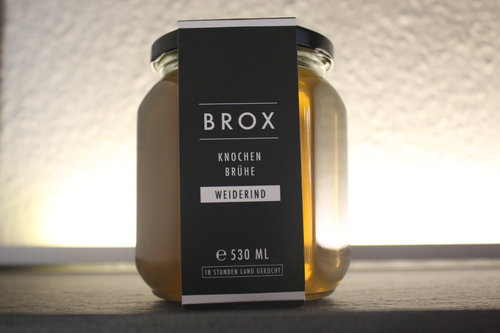
We all learned so much. Throughout the day, I asked Konrad about how he got started, and specific questions about his recipes, and about the nutritional benefits of bone broth. I learned so much from Konrad about how to turn what you believe in into something that can bring pleasure and health to others. I learned what it looks like to brilliantly transform something as ancient and basic as bone broth into something that both tastes and looks incredible. I also learned some of the finer points of how to make bone broth healthy, nutritious, and desirable. Their focus at Brox is on a producing a high quality, nutrient dense product. Each and every step they take in the production of their broth is focused on creating the most nutrient dense product possible. At Bone Brox they use only bones from the finest organic, free-range animals raised by farmers they know. They break up the bones into small pieces to increase the surface area so that they can release the maximum amount of nutrients more easily. They roast the bones first (for the flavor), and then they put them into cold water with some apple vinegar before they make the stock to further help aid in the release of minerals in the water. And, they use a special filter for the water that helps return it to as close to its original state as possible which prepares it to carry the maximum amount of nutrients. The final step in their quest for nutrient dense broth is to simmer the bones for a minimum of 18 hours to extract to most amount of minerals, collagen and flavor. They don’t add the vegetables until the end of the process to avoid introducing undue bitterness. This illustrates how every decision they have made, each and every step of the process, was to create the most amazing, nutrient dense product possible. They do not cut corners for the sake of saving money. The cornerstone of their business is to create something they can stand behind.

Each and every step of their process is entirely accessible to the home chef. It is empowering to know that every one of us can seek out bones from high quality animals and create an amazing product by following the same steps, in our stock pots, on our stovetops. It is comforting to know, however, that for those of us that do not have the time or desire to make our own bone broth, we can support people like Konrad and Jin by purchasing high-quality, nutrient dense foods done properly. An informed consumer is a powerful force.
Food is so incredibly connected to every aspect of life – from the physical and biological (health, diet, disease, sustainability) to the cultural (tradition, politics, religion, ethical, connection, addiction, financial) – that is why a true conversation about food is so incredibly difficult to have. However, when you can find common ground in a genuine conversation about food it is intense and meaningful and conveys so many other important aspects of who we are and how we view the world. A meaningful conversation about food provided the opportunity for Konrad and I to first meet and, also provided the backdrop that created the opportunity to bring my family and Jason to meet Konrad in Berlin. It also allowed Konrad to make the contacts he has made with community of people in Berlin that are changing the food scene in Berlin.
THE SAYING IS SO TRUE: FOOD IS LIFE.
But it is even more true here – food is engrained in all aspects of life. And when you can really connect through food, even through something as basic as bone broth – the possibilities are limitless!
Talk to that stranger next to you – just make sure it is a meaningful conversation. And, why not make it about food…
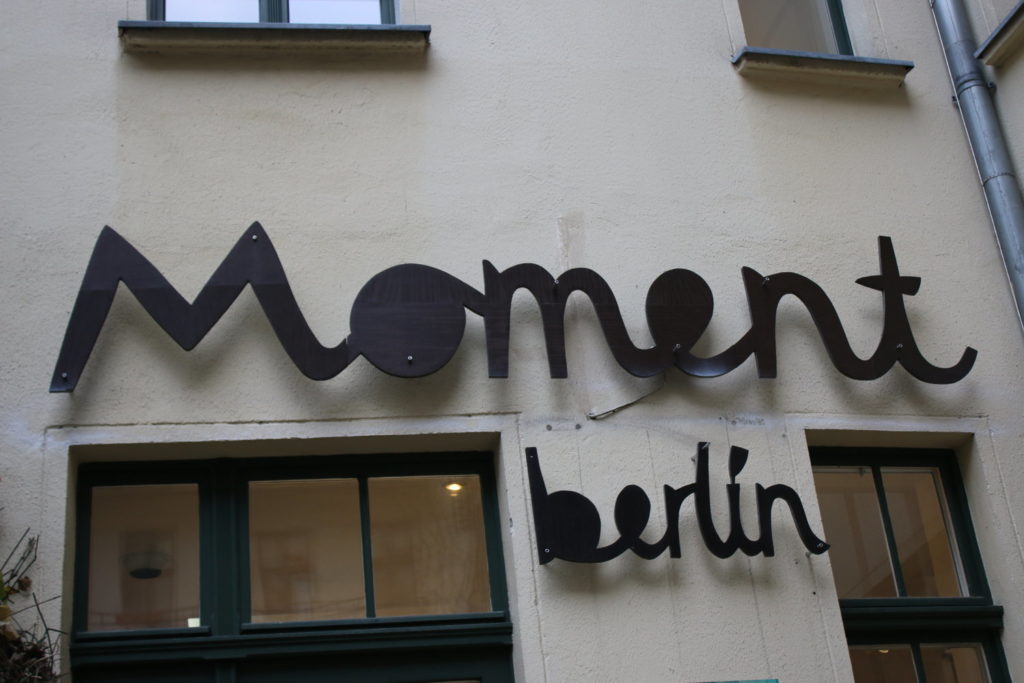
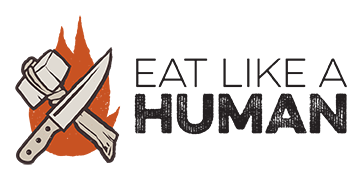
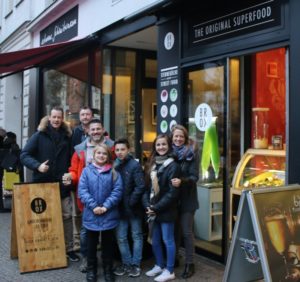
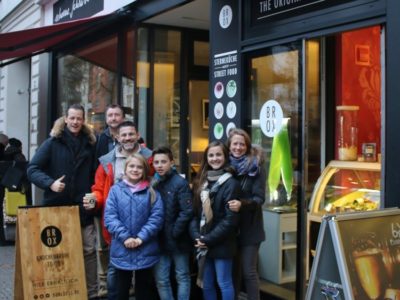
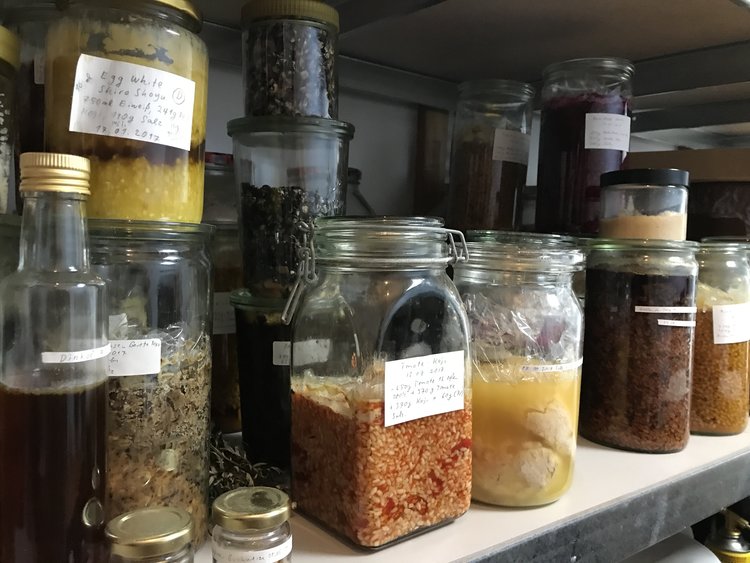
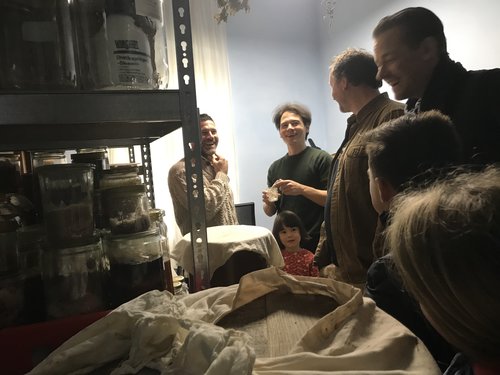
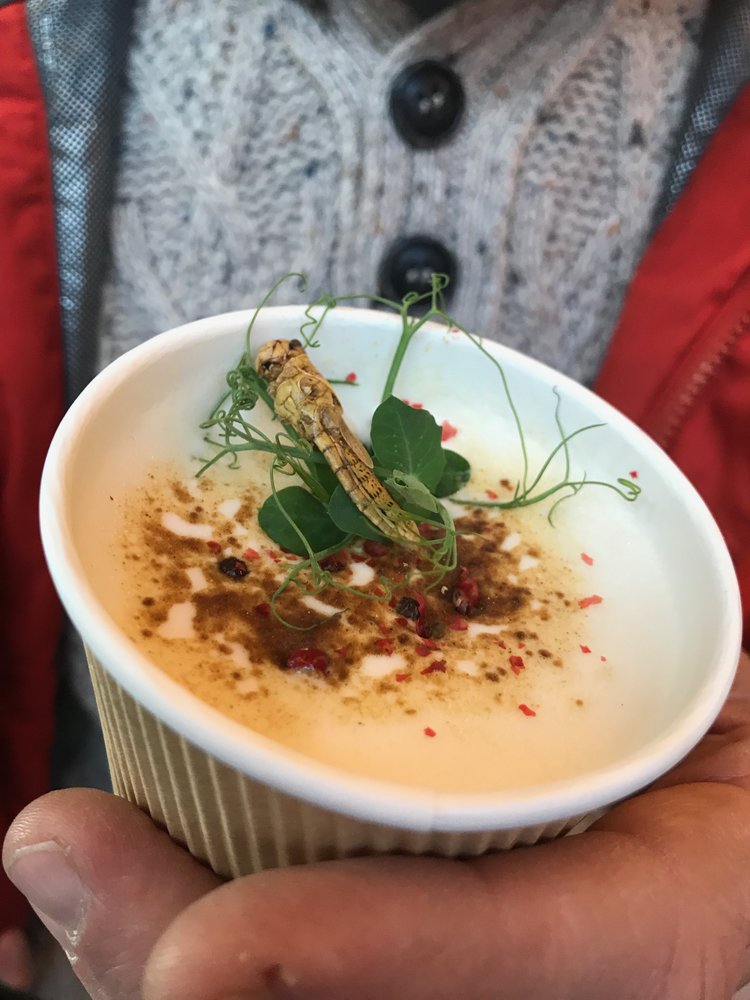
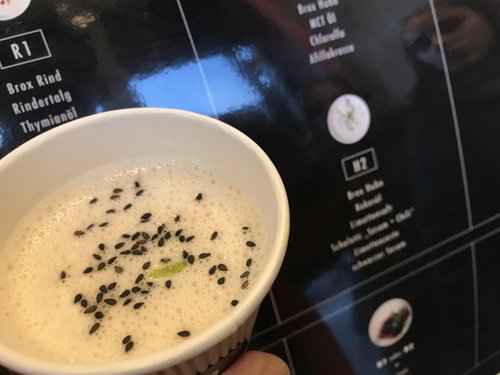
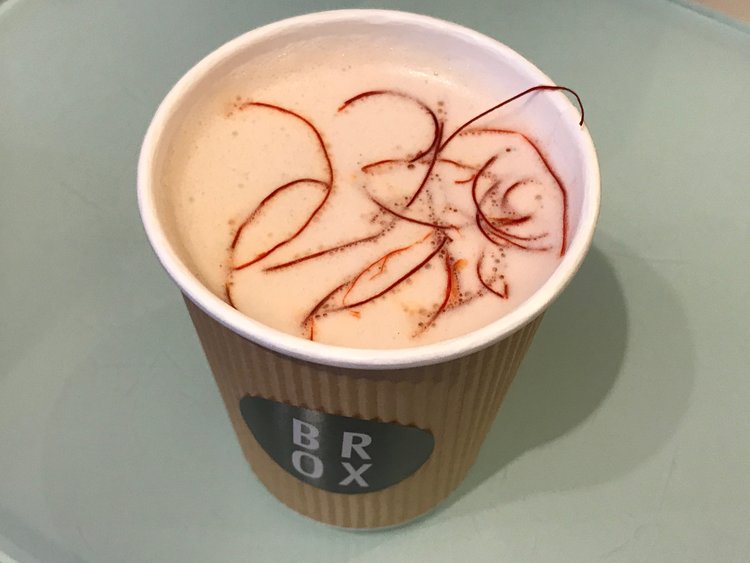

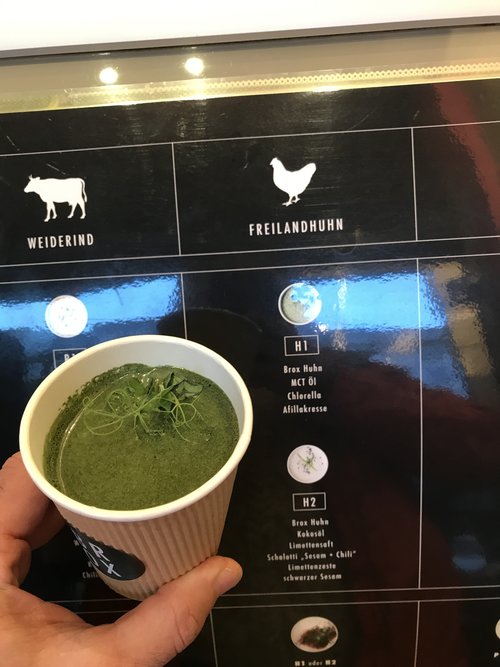
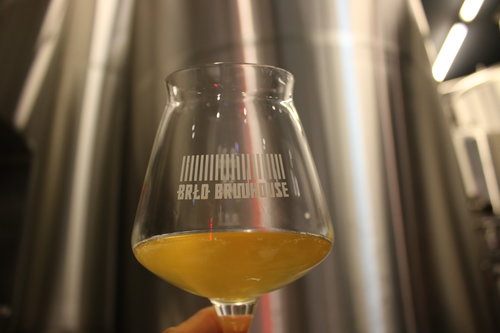
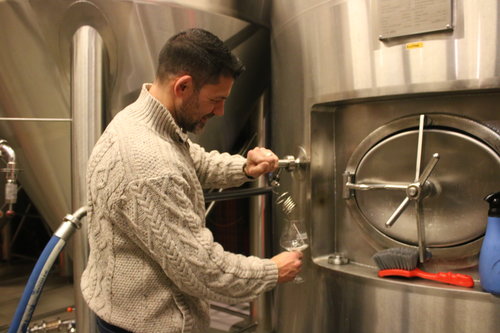
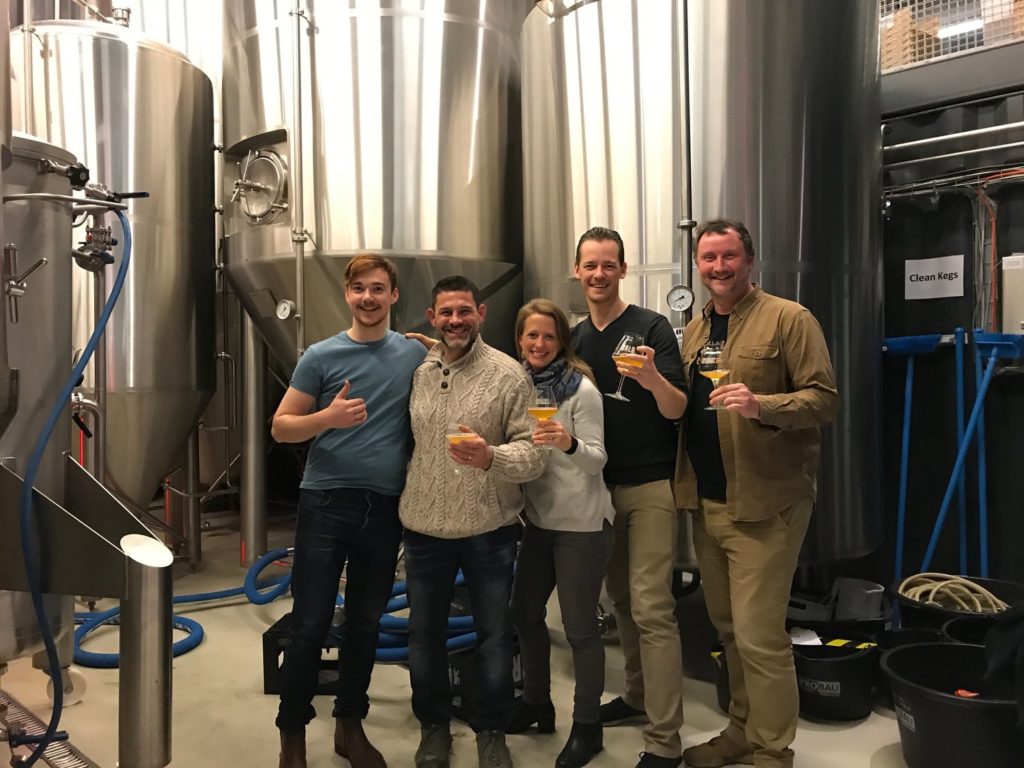
 Busy With B! Thanksgiving – Irish Style!
Busy With B! Thanksgiving – Irish Style!
Leave a Reply